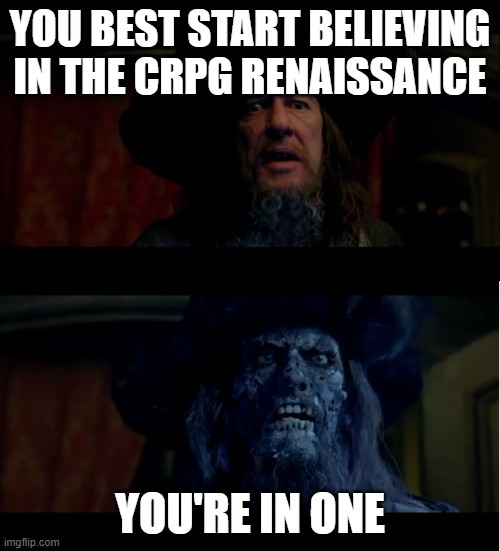Better writing. Other aspects such as improved cinematography,, AI-assisted programming, AR/VR, improved hardware, and so on are all definitely good and important, but the core issue is that (perhaps because video games are a much younger medium?), compared to those of the written word, TV, and film, both our general standards of what is considered to be good writing, as well as the overall capacity of our average writers to construct strong, original works is clearly much lower than it could and should be.
It's not merely about the quality of the writing and plots, it's about the way writing is approached by game writers.
They have to learn how to write for a
game, not a novel or a movie.
In the AAA space, games are written like movies. Stuff like God of War and Uncharted even plays like a movie: painfully linear and the path forward is so obviously signposted a blind man could see it. Everything is highly scripted, overly dramatic set pieces. The story is told in non-interactive cutscenes.
Ubisoft open world games are, despite having open world gameplay, similar in their delivery of storytelling. In the Far Crys, you explore a large area and liberate it from bad guys by taking over their outposts. There's even some light RPG elements with gaining XP and unlocking perks. But the story missions are all fully linear and the story is told in cutscenes. Cue narrative dissonance where your character acts like a whiny teenager in the cutscenes while you mow down hordes of enemies without breaking a sweat during gameplay. Assassins' Creed is similar: you may get to explore a big city on your own, but the story is told in linear cutscenes with zero player input - like a movie. (I haven't played Odyssey and Valhalla yet, but apparently they do have dialogue choices or something... even then, they're still very cinematic in presentation)
In the mid-budget RPG space, on the other hand, writers seem to think they're writing a novel rather than a game. And not a particularly good one at that. Paragraphs upon paragraphs of exposition dumped upon you before you even begin the game properly. Pillars of Eternity and Torment: Tides of Numenera are the worst offenders. SO. MUCH. TEXT. And most of it isn't even relevant to what happens in the game at all. I don't even hate long text by itself, Morrowind is one of my favorite games ever and it dumps a lot of lore on you too... but that lore usually refers to things you
actually find in the game, while Pillars and Numanuma waste hundreds of thousands of words telling you what other parts of the world look like, which you will never ever get to see. Words words words words but none of these words have any relation to what your character is doing in the game.
The quality of the writing could be top notch, but if they keep writing linear cinematic cutscene or endless loredumps with little relation to your actual actions, it's not gonna be a good fit for a game.
You know which RPG had really good writing? Arcanum. It was usually short and succinct, giving you enough information to know what's going on without bogging you down with extraneous shit. And the quest design was awesome: the quest designers/writers (if you write for a game, you should also be a quest designer, not just a monkey hitting the typewriter) made sure to give you different choices and outcomes and make them have an actual impact on the game.
Angery halfling wizard hates tech and wants you to wreck the local steam engine. It is guarded by a simple-minded dwarf who loves engines. He will attack you if you destroy it. But if you keep him alive instead of killing him, the constable will know that YOU destroyed the engine and never talk to you again. If you kill the dwarf, the constable won't know who did it and task you with finding a gear to fix it. If you fix it, the halfling wizard will feel betrayed and won't talk to you anymore. It's a simple setup, but it offers a lot of choice & consequence and can cut off a questgiver and/or a merchant permanently depending on how you do it.
This is what RPG writers need to do. Don't write something super deep and fancy that can rival the best novels and movies. Write something simple that is
made for a game. A simple situation with multiple ways of solving it, plenty of player choice, and different consequences depending on how the player approaches it.
Once they manage to do that competently enough, they can think about adding deeper themes and shit like that. But first, they must understand how to write for a game.


































